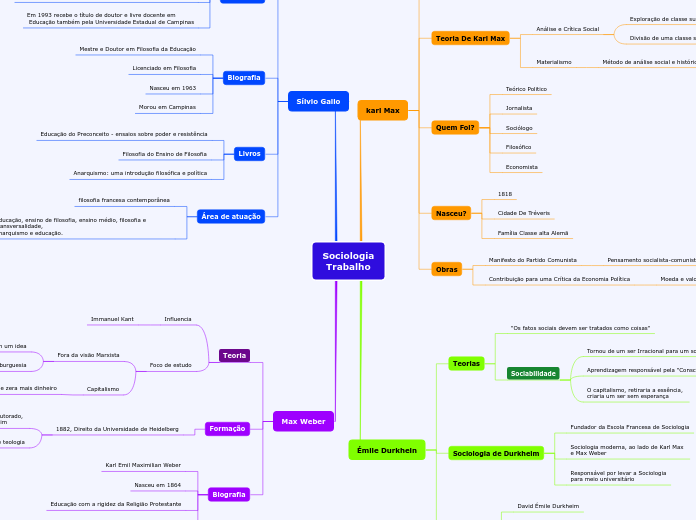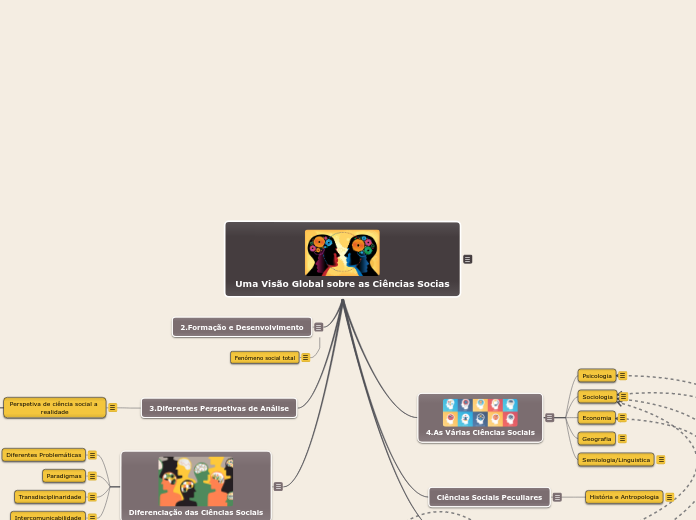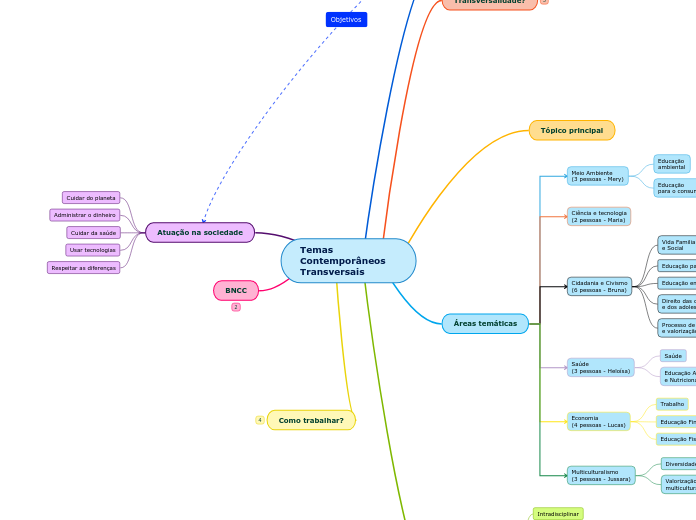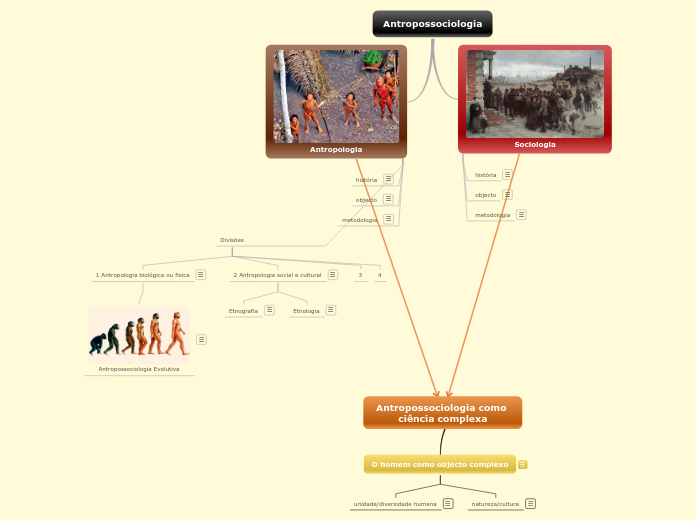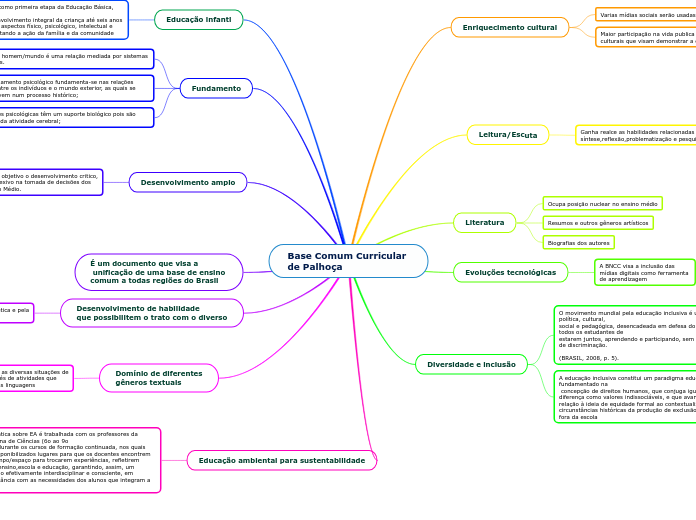Sociologia
Trabalho
In linguistics, syntax is the set of rules, principles, and processes that govern the structure of sentences in a given language, usually including word order.
Max Weber
A compound sentence is a sentence that has at least two independent clauses joined by a comma, semicolon or conjunction. An independent clause is a clause that has a subject and verb and forms a complete thought.
Create your own compound sentences, using the coordinators above.
Sociólogo e economista
Educação com a rigidez da Religião Protestante
Nasceu em 1864
Karl Emil Maximilian Weber
When independent clauses are joined with coordinators (also called coordinating conjunctions), commas and semicolons, they do more than just join the clauses. They add meaning and flow to your writing.
1882, Direito da Universidade de Heidelberg
focou em economia e teologia
1889 concluiu o seu Doutorado,
na universidade de Berlim
Teoria
Foco de estudo
Capitalismo
Sustentado pela prosperidade e zera mais dinheiro
Fora da visão Marxista
Exploração do proletariado pela burguesia
Weber acreditava que o capitalismo originava-se com um idea
Influencia
Immanuel Kant
Sílvio Gallo
A complex sentence is a sentence that contains an independent clause and one or more dependent clauses.
An independent clause can stand alone as a sentence, but a dependent clause even though it has a subject and a verb cannot stand alone.
Área de atuação
Attributive clauses serve as an attribute to a noun (pronoun) in the main clause. This noun or pronoun is called the antecedent of the clause.
educação, ensino de filosofia, ensino médio, filosofia e transversalidade,
anarquismo e educação.
filosofia francesa contemporânea
Livros
An adverbial clause is a group of two or more words that function as an adverb in a sentence.
Anarquismo: uma introdução filosófica e política
Filosofia do Ensino de Filosofia
Educação do Preconceito - ensaios sobre poder e resistência
An appositive clause follows another noun or noun phrase in apposition to it; that is, it provides information that further identifies or defines it.
Morou em Campinas
Nasceu em 1963
Licenciado em Filosofia
Mestre e Doutor em Filosofia da Educação
Formação
The subject clause is a dependent clause that acts as a subject.
Em 1993 recebe o título de doutor e livre docente em
Educação também pela Universidade Estadual de Campinas
1990, tornou-se mestre em Educação pela Universidade Estadual de Campinas
Filosofia pela Pontifícia Universidade Católica de Campinas
Émile Durkhein
Biografia
See the example below and try to create your own simple sentences.
Tim is driving the red car.
21 Anos entrou na Escola Normal Superior de Paris
Orientado pelo Professor Fustel de Coulanges
Formou em Sociologia
França, 15 de Abril de 1858
Família Judia
David Émile Durkheim
Sociologia de Durkheim
See the example below and try to create your own simple sentences.
Tim is driving the car with his mother.
Responsável por levar a Sociologia
para meio universitário
Sociologia moderna, ao lado de Karl Max
e Max Weber
Fundador da Escola Francesa de Sociologia
Teorias
See the example below and try to create your own simple sentences.
Tim is the driver.
Sociabilidade
O capitalismo, retiraria a essência,
criaria um ser sem esperança
Aprendizagem responsável pela "Consciência Coletiva"
Tornou de um ser Irracional para um sociável
"Os fatos sociais devem ser tratados como coisas"
karl Max
Obras
The attribute is defined as a quality or characteristic of a person, place or thing.
Contribuição para uma Crítica da Economia Política
Moeda e valor da mercadoria
Manifesto do Partido Comunista
Pensamento socialista-comunista
Nasceu?
The predicative is defined as an adjective or noun forming or contained in the predicate.
Its main trait is that it serves to express a property that is assigned to a 'subject'.
For e.g.: The dog is old.
Família Classe alta Alemã
Cidade De Tréveris
1818
Quem Foi?
Traditional grammar defines the object in a sentence as the entity that is acted upon by the subject.
Economista
Filosófico
The indirect object identifies the person/thing for whom/which the action of the verb is performed.
The indirect object is usually a person or a thing.
Sociólogo
The direct object is the receiver of the action mentioned in the sentence.
Jornalista
Teórico Politico
Teoria De Karl Max
The predicate of a sentence is the part that modifies the subject in some way. Because the subject is the person, place, or thing that a sentence is about, the predicate must contain a verb explaining what the subject does and can also include a modifier.
Materialismo
Método de análise social e histórica baseado na luta de classes
Análise e Crítica Social
Divisão de uma classe social
Exploração de classe superiores com a inferior
Sistema Marxista
Infraestrutura
Tem a pauta de economia
Centralidade na esfera produtiva
Alienação
Separação evidente trabalhador
